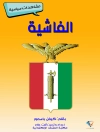This volume examines the polycentric structure of Europe, its heterogeneous cultural and linguistic areas and its demarcation and exclusionist tendencies. Contributions discuss the trouble spots of cultural encounters: cities and states, social spaces (courts and saloons), and religious spaces. They take into account international cultural exchange through the military forces and science transfer as well as the significance of the epic genre and the novel as sources of identity. Other contributions discuss national demarcation tendencies and the prestige mentality of rulers as well as the contempt for the peripheral countries and cultural exclusion of the ’savages‘ of Europe (Corsicans, Sardinians, Sami) expressed in different media (song, architecture, the fine arts). One important dimension for establishing a modern European identity, lastly, is the interaction with America, which, though still unknown at the time, was seen as a promising land of encounter where Europeans would also redefine themselves.
Über den Autor
Prof. Dr. Dirk Wiemann lehrt Englische Literatur am Institut für Anglistik/Amerikanistik der der Universität Potsdam.












